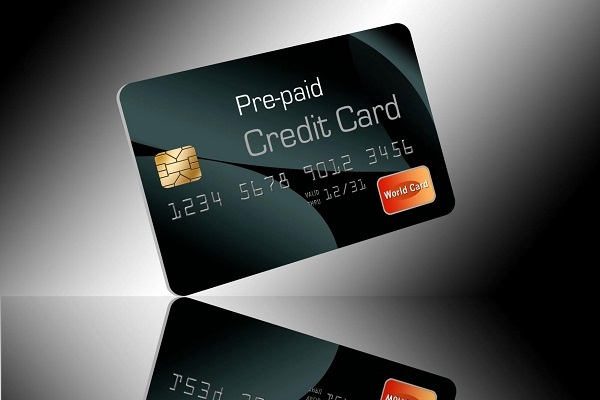Secured and prepaid credit cards offer easier access to credit compared to traditional unsecured cards. While both require an upfront deposit to use, they serve different purposes and cater to varying financial goals. This article explores the key features, pros, and cons of secured and prepaid cards to help you decide which option is better for you.
Understanding Secured Credit Cards
A secured credit card functions similarly to a regular credit card, but with one key difference: you provide a security deposit upfront. This deposit, typically equivalent to your credit limit, acts as collateral for the issuer in case you fail to repay your balance. Secured cards are ideal for individuals with limited credit history or bad credit scores who want to build or rebuild their credit.
How Secured Credit Cards Work
Let’s assume you desire a secured card with a $1,000 credit limit. If you lack the qualifications for a traditional unsecured credit card, you can apply for a secured card and provide a $1,000 security deposit to the issuer.
You can then use the card for purchases, and you’ll be required to settle your statement balance just like with a regular credit card. Late payments will incur interest charges, and neglecting minimum payments will be reported to credit bureaus, negatively impacting your credit score.
It’s important to remember that your security deposit isn’t meant to cover your credit card bill directly. However, if you consistently fail to clear your balance, the issuer can seize your deposit to settle your debt. In such a scenario, they’ll likely close your account as well.
On the flip side, responsible credit card usage with on-time payments reflects positively on your credit report. This can lead to the issuer eventually graduating you to an unsecured credit card after a while, with your security deposit being returned. Alternatively, if you no longer require the secured card, you can settle your balance entirely, close the account, and receive your deposit back.
Benefits of Secured Credit Cards
- Function like regular credit cards: Secured cards offer a convenient payment solution for online and in-person transactions, along with fraud protection benefits.
- Easier qualification: Even with poor credit, qualifying for a secured card is significantly easier compared to unsecured credit cards.
- Credit score improvement: Responsible usage of a secured credit card can significantly improve your credit score.
- Refundable deposit: Your security deposit is fully refundable upon closing your account in good standing.
- Rewards on some cards: A few secured cards offer reward programs, incentivizing responsible credit card use.
- Potential upgrade to unsecured cards: Over time, you might be eligible for an upgrade to a traditional unsecured credit card with better terms.
Downsides of Secured Credit Cards
- Fees: Many secured cards come with annual fees and monthly maintenance charges, adding to the overall cost of using the card.
- Security deposit requirement: You’ll need to tie up a certain amount of money as a security deposit.
- Limited rewards: Most secured cards don’t offer rewards programs or perks compared to unsecured cards.
- Higher interest rates: Interest rates on outstanding balances and cash advances tend to be higher with secured cards.
- Upgrade uncertainty: Upgrading to an unsecured card isn’t guaranteed and might take a considerable amount of time.
Understanding Prepaid Credit Cards

Prepaid credit cards, like secured cards, require you to preload funds before using them. However, unlike secured cards, prepaid cards are not true credit cards. They don’t help build credit as your spending activity isn’t reported to credit bureaus. Since you’re using your own preloaded funds, there are no interest charges.
In essence, prepaid cards operate more like debit cards linked to your checking account. Once you’ve exhausted the preloaded funds, the card becomes unusable for further transactions.
Fortunately, most prepaid cards are reloadable, allowing you to add more money whenever needed. Prepaid cards in Canada are issued by major payment networks like Visa and Mastercard.
Benefits of Prepaid Credit Cards
- Easy application and approval: Prepaid cards generally don’t require a credit check, making them accessible to everyone regardless of credit history.
- Low or no fees: Many prepaid cards come with minimal or no monthly/annual fees, making them a cost-effective payment option.
- No impact on credit score: Since prepaid card activity isn’t reported to credit bureaus, there’s no risk of negatively affecting your credit score.
- No interest or overdraft fees: You’ll avoid interest charges and overdraft fees associated with traditional credit cards.
- Budgeting and money management: Prepaid cards can be a valuable tool for budgeting and developing healthy money management habits by limiting spending to preloaded funds.
- Rewards and perks (on some cards): Certain prepaid cards offer cashback rewards and other perks for using the card at specific merchants.
- Fraud protection: Many prepaid cards provide some level of protection against unauthorized transactions.
Downsides of Prepaid Credit Cards
- No credit building: Regular prepaid card usage doesn’t contribute to building credit history as there’s no credit line involved.
- Limited functionality: Unlike credit cards, you cannot access a line of credit for “buy now, pay later” scenarios.
- Hidden fees: Be cautious of potential hidden fees, such as card reload fees, inactivity fees, and card replacement fees, which can add up over time.
- No CDIC insurance (on some cards): The balance on some prepaid cards may not be eligible for CDIC deposit insurance, which protects your funds in case of bank failure.
Secured vs. Prepaid Credit Cards: A Head-to-Head Comparison
Here’s a breakdown of key features to help you compare secured and prepaid credit cards:
| Feature | Secured Credit Card | Prepaid Credit Card |
|---|---|---|
| Credit Check | Typically required | Not required |
| Ease of Application | Easier than unsecured cards | Easy |
| Fees | May have annual and monthly fees | May have low or no fees |
| Credit Building | Yes, with responsible use | No |
| Rewards | May offer limited rewards | May offer limited rewards |
| Perks | Uncommon | Uncommon |
| Spending Limit | Determined by security deposit | Pre-set amount or reloadable |
| Buy Now, Pay Later | Yes | No |
Choosing Between Secured and Prepaid Cards:
- Secured credit card: Opt for a secured credit card if you aim to improve or rebuild your credit score. By using the card responsibly and making timely payments, you can establish a positive credit history. This can be particularly beneficial if you’re planning to apply for loans, mortgages, or other lines of credit in the future.
- Prepaid credit card: Consider a prepaid credit card if you want to avoid using credit altogether, especially if you tend to overspend. Prepaid cards can be a valuable budgeting tool as you can only spend the money you preload onto the card. This helps you stay within your financial limitations and avoid accumulating debt.

